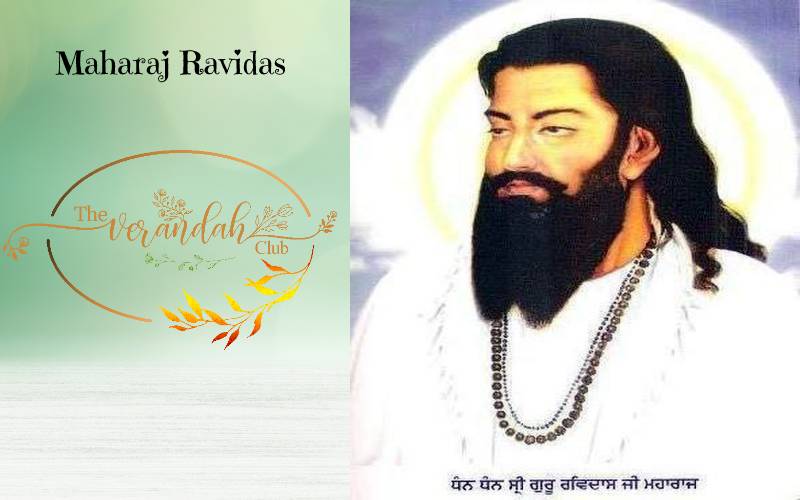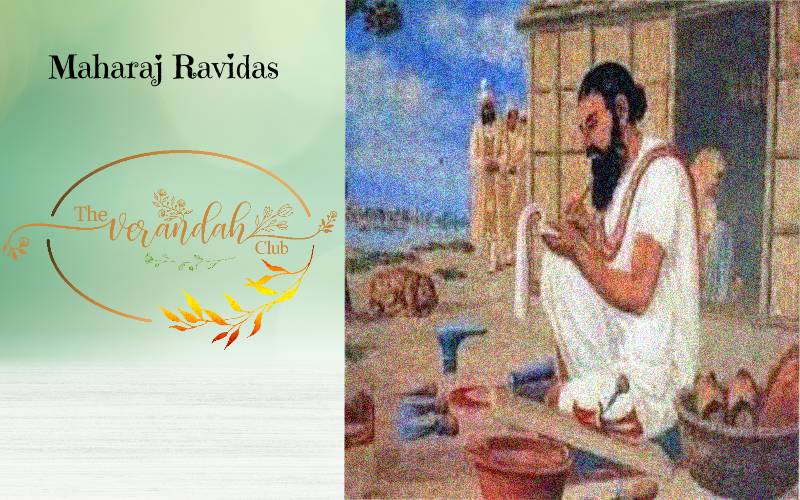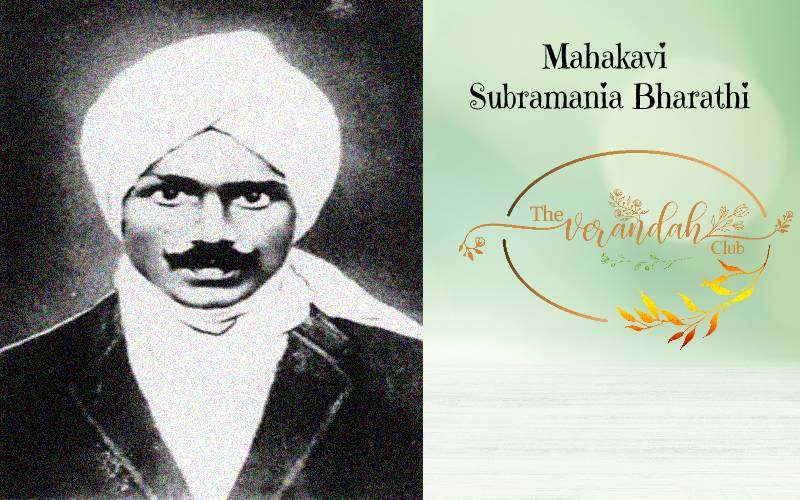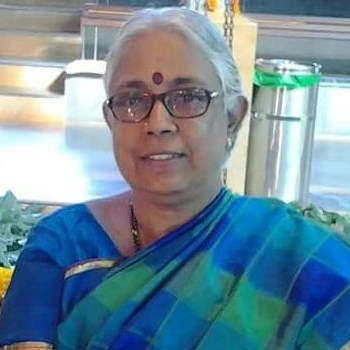Sant Ravidas and Ganga Maiya’s Kangan

Sant Ravidas (or Raidas) was a mystic poet and a social reformer who constantly fought for the removal of social divisions of caste and gender and promoted unity through spiritual pursuits.
Scholars believe that Ravidas lived in the 14th or 15th century. Though the year of his birth is not very clear, his birthday is celebrated every year as Ravidas Jayanthi on the full moon day of Magha month (February - March).
Ravidas’s father was a cobbler. When he grew up, Ravidas took to his father’s occupation for a living. However, his mind was more inclined towards spiritual pursuits. He used to sit at the banks of the Ganga and spend a lot of time in the company of Sufi saints and ascetics. He was a disciple of Guru Ramananda and a younger contemporary of Kabirdas. Mirabai was his disciple.
Ravidas was drawn to Nirguna bhakti (devotion to the formless God) and his poetic hymns inspired people from various backgrounds. ‘Adi Granth,’ the holy book of the Sikhs contains 41 of Ravidas' poems.
One of his sayings, ‘Man Changa To Katothi Mein Ganga’ (मन चंगा तो कठोती में गंगा – If the mind is pure, Ganga will appear in a small vessel) is backed by an interesting legend.

Ravidas lived in a village near Varanasi. He used to sit by the side of a road that led to the River Ganga and wait for customers. Though he had great love for Mother Ganga, he had never gone near the river. As he was a cobbler by birth and profession, he was treated as an untouchable by the society and was not allowed to touch the holy waters of the river. He would worship Ganga Maiya from a distance.
One day, a learned pundit was walking towards the Ganga. Suddenly, his footwear snapped. As he looked for a cobbler to mend his footwear, he found Ravidas sitting by the roadside. He went to him and requested him to mend his footwear. Ravidas immediately obliged and did a neat job of it. The pundit was pleased and offered him a coin.
Ravidas said, “Master! I don’t want any money. It is enough that I got a chance to serve a scholar and devotee like you.”
But the pundit would not agree. He insisted that he would pay Ravidas what was his due.
Ravidas said, “Master! In that case, please give this coin to Ganga Maiya on my behalf. I can’t directly go and give her. Please do me this favour.”
The pundit agreed and left. (Even today, we can see people throwing coins into the waters of holy rivers, as offering.)
After bathing in the Ganga and offering his worship to her, the pundit remembered the coin given by Ravidas. He threw the coin into the waters saying, “Mother, that cobbler has given this coin to you.”
And, lo! Two beautiful hands decked with bangles appeared above the surface of the water, received the coin with great respect and gave an exquisitely designed Kangan (Bracelet) to the pundit, in return. At the same time, there was an Ashareeri (The formless voice) that said, “I have accepted this offering given by my devotee Ravidas. Please hand over this kangan to him as my gift.”
The pundit could not believe his eyes. The kangan dazzled in his hands.
The pundit was actually not a bad person. But he could not resist the temptation to take the kangan to his home. He thought, “How will Ravidas know that Ganga Maiya has given this kangan to him? And, what will he do with this kangan? I will take it to my wife.”
His wife was of course very happy to receive the kangan. But she would not be able to wear it outside and show off. People would not believe that such a poor woman could afford to buy such a valuable kangan. They might suspect that it was a stolen jewel.
So, she asked her husband to gift it to the king. She was sure the king would reward him generously.
When the pundit gave the kangan to the king, he happily accepted it and gave the pundit a lot of money.
When the king took the kangan to his wife, she was delighted. “Oh! How beautiful! See how these stones dazzle!”, she cried. But the next minute she said, “There should be one more. I want that too for the other hand.”
The king could not displease his wife. He sent for the pundit and asked him to give the other kangan too.
Now, what would the pundit do? If he did not carry out the king’s command, he would lose his life. He ran to Ravidas, and fell at his feet. Ravidas was shocked and got up in a hurry. He said, “Master! I should only fall at your feet. Why are you doing this?”
With folded hands, the pundit narrated the whole story. “Please forgive me, Ravidas. My life is in danger. If I don’t take the other kangan to the king, I will lose my life. Only you can save me. Please get the other kangan from Ganga Maiya.”
Ravidas closed his eyes. He looked at the small vessel with soiled water that was used for cleaning leather and prayed, “Mother! Please give the other kangan and save this pundit’s life.”
As they were looking into the water, they could see something shining inside the dirty water. Ravidas took it out. It was a similar kangan that Ganga Maiya had given to the pundit for Ravidas. Ravidas gave it to the pundit and asked him to give it to the king.
But the pundit had undergone a transformation as he was watching all this. He realized the greatness of Ravidas’s devotion. Ravidas could get anything just by asking God. But he led a simple life because he knew the worthlessness of worldly things. The pundit was born again as a devotee. All the impurities of his heart were washed away in the dirty water in the small vessel.
He fell at Ravidas’s feet once again. “He said, “Master! My ignorance has vanished. I have understood what is real wealth. Please accept me as your disciple and show me the way.”
From that day, he became an ardent disciple of Ravidas and spent the rest of his life serving him.
This news spread far and wide. Ravidas was accepted as a saint and people came in large numbers seeking his guidance.
The following poem by Ravidas describes his intense devotion that makes him inseparable from the Divine.
If you want to listen to this, here is the link - https://www.youtube.com/watch?v=_KYl8Zn4vxE
प्रभु जी तुम चंदन हम पानी,
जानकि अंग अंग बॉस समानी,
प्रभु जी, तुम घन, बान हम मोरा,
जैसे चेतवंत चांद चाकोरा,
प्रभु जी तुम चंदन हम पानी..........
प्रभु जी तुम मोती हम धागा,
जैसे सोहने मिलत सुहागा,
प्रभु जी तुम चंदन हम पानी..........
प्रभु जी, तुम दीपक हम बाती,
जाकी ज्योति जले दीनी राती,
प्रभु जी तुम चंदन हम पानी..........
प्रभु जी, तुम स्वामी, हम दसा,
एसी भक्ति करै रैदासा,
प्रभु जी तुम चंदन हम पानी..........
Explanation:
Prabhuji Tum Chandan, Hum Pani . Janaki ang ang baas samaanee.
My Lord! You are the sandalwood and I am water. Together we make the sandal paste and fill the body with fragrance.
Prabhuji, Tum Ghan Ban, Hum Mora Jaise Chitwat Chand Chakora
My Lord! You are the dark cloud and I am the peacock. Like the Chakora bird that never stops gazing at the Moon, I too keep gazing at your sweet face, all the time.
Prabhuji Tum Deepak, Hum Baati Jaaki Jyoti Barai Din Raati
My Lord! You are the lamp and I am the wick. Together we give light day and night.
Prabhuji Tum Swami, Hum Dasa ; Aisi Bhakti Karai Raidasa
My Lord! You are the Lord and I am your slave. Ravidas’s devotion is like that.
People who are familiar with Bharathiyar’s poems, will immediately think of the following poem.

பாயு மொளி நீ யெனக்கு, பார்க்கும் விழி நானுனக்கு, தோயும் மது நீ யெனக்கு, தும்பியடி நானுனக்கு.
You are my light and I am your eye; your are honey to me and I am the bee.
வீணையடி நீ யெனக்கு, மேவும் விரல் நானுனக்கு; பூணும் வடம் நீ யெனக்கு, புது வைரம் நானுனக்கு;
You are the veena and I am the finger that brings music out of it. You are the necklace that I wear and I am the diamond studded in it.
வான மழை நீ யெனக்கு வண்ண மயில் நானுனக்கு; பான மடி நீ யெனக்கு, பாண்டமடி நானுனக்கு;
You are the rain and I am the peacock that rejoices in the rain. You are my drink and I am your container.
வெண்ணிலவு நீ யெனக்கு, மேவு கடல் நானுனக்கு; பண்ணு சுதி நீ யெனக்கு, பாட்டினிமை நானுனக்கு;
You are the pure Moon and I am the ocean that dances in joy looking at you. You are the sruthi for me and I am the sweet music.
வீசு கமழ் நீ யெனக்கு, விரியுமலர் நானுனக்கு; பேசுபொருள் நீ யெனக்கு,பேணுமொழி நானுனக்கு;
You are the fragrance and I am the flower; You are the subject of my talk and I am your language.
காதலடி நீ யெனக்கு, காந்தமடி நானுனக்கு; வேதமடி நீ யெனக்கு, வித்தையடி நானுனக்கு;
காதலடி நீ யெனக்கு, காந்தமடி நானுனக்கு; வேதமடி நீ யெனக்கு, வித்தையடி நானுனக்கு;
You are my love and I am the attraction; You are the knowledge and I am the learning.
You are my love and I am the attraction; You are the knowledge and I am the learning.
Whatever be the period they have lived in, whatever be their faith and whatever be the language they used to express themselves, it is always an indisputable fact that great men think alike.

B. Ramadevi is a teacher of English and a freelance reviewer of music and dance. Being a polyglot, she gets inputs from various sources and loves to share it with interested people. She contributes articles for Verandah Club on characters from Indian scriptures and classics.

No comments:
Post a Comment